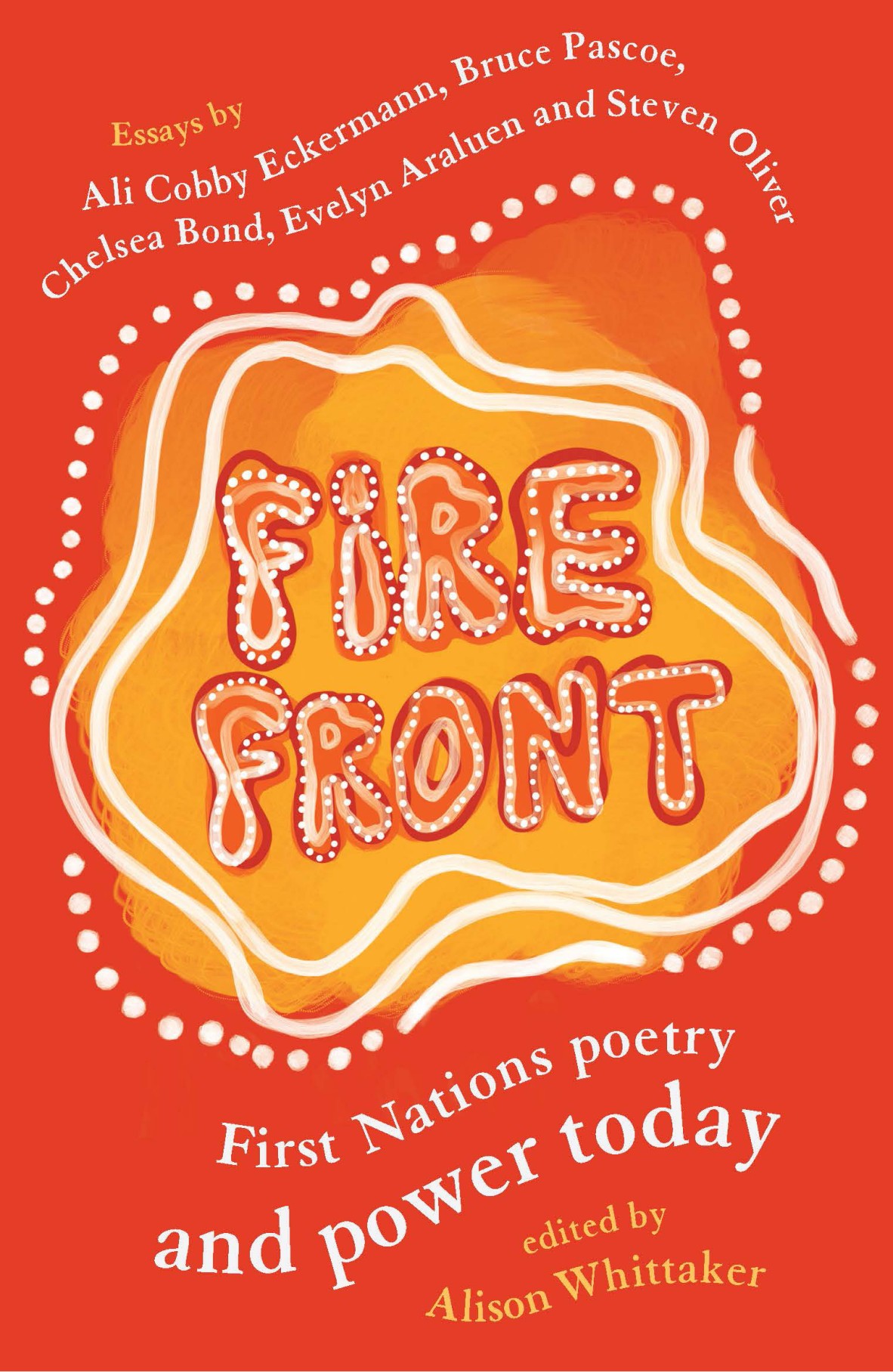Fire Front: First Nations Poetry and Power Today
By Shastra Deo | 2 June 2020
National Reconciliation Week (27 May – 3 June) invites all Australians to learn about our shared histories, cultures, and achievements, and to explore how we can contribute towards achieving reconciliation in Australia.
This year’s theme “In this together” reminds us that, whether in pandemic, natural disaster, recovery, or reconciliation, some challenges are shared by everybody. In times of widespread crisis and difficulty, reading is one of the most effective ways we can remain connected with each other.
Need some fresh titles to add to your reading list? We recommend Fire Front: First Nations Poetry and Power Today (UQP, 2020).

Fire Front: First Nations Poetry and Power Today (UQP, 2020)
Become a State Library member to read Fire Front online (for free!), and be sure to check out the Wheeler Centre’s Fire Front showcase, hosted by Alison Whittaker. The showcase features a Welcome to Country from Parbin-Ata Carolyn Briggs, readings from contributors Tony Birch, Charmaine Papertalk Green, Ali Cobby Eckermann, Meleika Gesa-Fatafehi, Jeanine Leane, Natalie Harkin, Lorna Munro, Raelee Lancaster, Luke Patterson, and Evelyn Araluen, and closes with a yarn between Evelyn Araluen and Alison Whittaker.
It’s impossible to profile every author in this formidable anthology, but we’d like to acknowledge a few of the Brisbane-based and/or Queensland Literary Awards-associated authors whose work appears on the page.
Alison Whittaker
Alison Whittaker is a Gomeroi writer, legal academic, and editor of and contributor to Fire Front. Between 2017–2018, she was a Fulbright scholar at Harvard Law School, where she was named the Dean’s Scholar in Race, Gender and Criminal Law. Alison is a Senior Researcher at the Jumbunna Institute at UTS. Her debut poetry collection, Lemons in the Chicken Wire (Magabala, 2016), was awarded State Library of Queensland’s black&write! Indigenous Writing Fellowship in 2015. Her latest book, Blakwork (Magabala, 2018), was shortlisted for a Victorian Premier’s Literary Award and won the Queensland Literary Awards’ Judith Wright Calanthe Award for a Poetry Collection. Alison is a judge for the 2020 Queensland Literary Awards. State Library members can read Blakwork online here.
Meleika Gesa-Fatafehi
Meleika Gesa-Fatafehi is a proud Black/Indigenous, Pasifika and West Asian writer. Their mob is from Murray (Mer) Island, from the Zagareb and Dauareb tribes. Meleika is also a literature and film critic; you can find her rambling at Endless Yarning, RadioNZ, and NerdyPoC. She loves talking about all things nerdy, as well as decolonising spaces online and in real life. Meleika is a 2019 Next Chapter Recipient and a judge for the 2020 State Library of Queensland Young Writers Award. Read her fiction, “Into the valley”, online at Overland.
Ellen van Neerven
Ellen van Neerven is an award-winning writer of Mununjali Yugambeh (South East Queensland) and Dutch heritage. They write fiction, poetry, plays and non-fiction. Ellen’s first book, Heat and Light (UQP, 2014), was the recipient of the David Unaipon Award, the Dobbie Literary Award and the NSW Premier’s Literary Awards Indigenous Writers Prize. Their second book, the poetry collection Comfort Food (UQP, 2016), was shortlisted for the NSW Premier’s Literary Awards Kenneth Slessor Prize and highly commended for the 2016 Wesley Michel Wright Prize. Ellen’s highly anticipated second poetry collection, Throat (UQP, 2020), was the inaugural recipient of the UQP Quentin Bryce Award. Ellen is a judge for 2020 Queensland Literary Awards. State Library members can read Throat online here.
Jeanine Leane
Jeanine Leane is a Wiradjuri writer, poet and academic from southwest New South Wales. Her first novel, Purple Threads (UQP, 2011), won the David Unaipon Award for an unpublished Indigenous writer in 2010. She is the recipient of an Australia Research Council Grant on Aboriginal literature: Aboriginal Writing: Shaping the literary and cultural history of Australia, since 1988. Jeanine teaches Creative Writing and Aboriginal Literature at the University of Melbourne. She is a judge for 2020 Queensland Literary Awards. State Library Members can read some of Jeanine’s works online here.
Raelee Lancaster
Raelee Lancaster is a Brisbane-based writer, collaborator and creative producer. Raised on Awabakal land in Newcastle NSW, she is descended from the Wiradjuri and Biripi peoples. Raelee is the Co-Director of the National Young Writers Festival and was a recipient of a Copyright Agency First Nations Fellowship 2019. In 2018, Raelee was awarded first place for the Nakata Brophy Prize for Young Indigenous Writers. Her writing has featured in Cordite Poetry Review, The Guardian, The Saturday Paper, Overland, The Lifted Brow, and others. State Library Members can read Raelee’s Nakata Brophy Prize-winning poem in Fire Front.
Bruce Pascoe
Bruce Pascoe is a Bunurong, Yuin and Tasmanian man born in the Melbourne suburb of Richmond. He is a member of the Wathaurong Aboriginal Co-operative of southern Victoria and has been the director of the Australian Studies Project for the Commonwealth Schools Commission. His most recent book, Dark Emu: Black Seeds: agriculture or accident (Magabala, 2014), won the 2016 NSW Premier’s Book of the Year Award and was shortlisted for the Queensland Literary Awards’ History Book Award. State Library members can read Dark Emu online here.
This National Reconciliation Week, we celebrate our collective journey towards reconciliation. We’re all in this together—share your favourite Aboriginal and/or Torres Strait Islander writers with us in the comments below.
Comments
Your email address will not be published.
We welcome relevant, respectful comments.